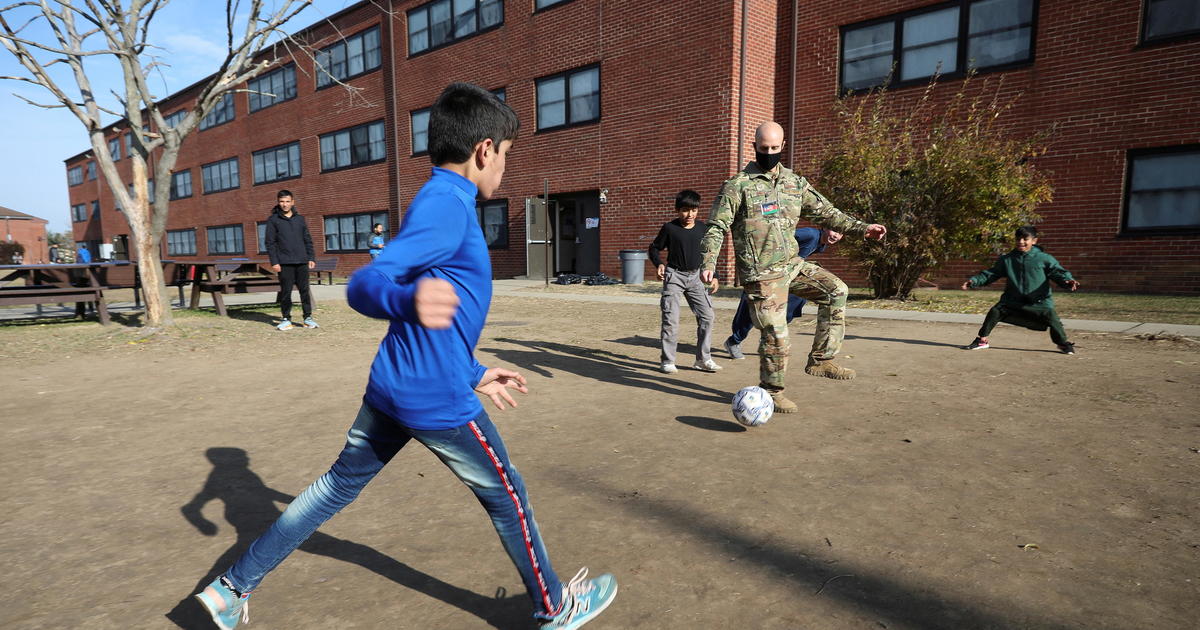
U.S. relocates all Afghan evacuees from military sites, completing first resettlement phase
CBSN
The Biden administration on Saturday relocated the last group of Afghan evacuees from a military site in New Jersey, completing the first phase of a historic, six-months-long operation to resettle vulnerable Afghans in the aftermath of the abrupt collapse of the U.S.-aligned government in Kabul.
As part of the largest U.S. resettlement effort in decades, the Biden administration established a network of short-term housing hubs at military bases overseas and across the U.S. last summer to quickly process tens of thousands of Afghans who were deemed to be at risk of harm in Taliban-controlled Afghanistan.
U.S. officials used "lily pads" at military sites overseas to vet and process Afghans airlifted from Kabul last summer, and set up eight temporary housing installations known as "safe havens" at domestic bases to vaccinate the new arrivals against contagious diseases and finish their resettlement processing.

More than 2 million federal employees face a looming deadline: By midnight on Thursday, they must decide whether to accept a "deferred resignation" offer from the Trump administration. If workers accept, according to a White House plan, they would continue getting paid through September but would be excused from reporting for duty. But if they opt to keep their jobs, they could get fired.

More employees of the Environmental Protection Agency were informed Wednesday that their jobs appear in doubt. Senior leadership at the EPA held an all-staff meeting to tell individuals that President Trump's executive order, "Ending Radical and Wasteful Government DEI Programs and Preferencing," which was responsible for the closure of the agency's Diversity, Equity, and Inclusion office, will likely lead to the shuttering of the Office of Environmental Justice and External Civil Rights as well.

In her first hours as attorney general, Pam Bondi issued a broad slate of directives that included a Justice Department review of the prosecutions of President Trump, a reorientation of department work to focus on harsher punishments, actions punishing so-called "sanctuary" cities and an end to diversity initiatives at the department.










